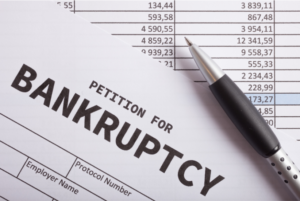
CRA Collection Letters for CERB Ineligibility or Overpayment: Can You File Bankruptcy?
The Canada Emergency Response Benefit or CERB helped many people in the pandemic bridge the gap between their wages and living expenses. However, some people who received support payments under CERB later got a collection letter from the CRA. You might have been one of many who received the benefit but did not meet the eligibility criteria and now have to pay back the benefit.
While all types of debt can be stressful and overwhelming, the debt you owe to the CRA can be incredibly daunting. If you received a collection letter from the CRA but can’t afford to pay them back in full, we’ll walk you through your options to eliminate your tax debt with the CRA.
Collection Letters for CERB
CERB payments helped many people who lost their jobs or had their hours cut and could no longer afford their living expenses.
In the early days of the pandemic, the government wanted to get money to Canadians as quickly as possible. That resulted in some confusion about eligibility. The CRA is now going back to the benefit payments to make sure that only eligible recipients were the ones who got CERB.
As a result, you might have even received a collection letter from CRA about the repayment of CERB.
The CRA sent collection letters for CERB ineligibility or overpayment when an individual received CERB but did not qualify for the program or received more than they should have received from the government.
If you received a collection letter from the CRA for the debt, it likely was due to one of three reasons:
- you didn’t meet the income eligibility criteria at the time of filing,
- you received multiple payments – from the CRA and Service Canada, or
- you earned more than anticipated when you first applied
If you receive a CERB collection letter from the CRA, it’s essential to take action as soon as possible. The CRA can take steps to recover the money owed, including wage garnishment, seizure of assets and holding back any refunds or payments.
What should I do if I cannot afford to pay back the CRA?

Similar to other CRA debt, when you can’t afford to pay back the CRA, you have three options to eliminate tax debt with the CRA. You can:
- Negotiate a payment plan with the CRA
- Consider debt consolidation
- File for a consumer proposal or bankruptcy
Negotiate a payment plan with the CRA
If you cannot pay back the CRA in full, they may be open to a payment plan to settle your tax debt. Negotiating with the CRA may seem like an intimidating option. However, it can be an excellent option to pay back what you can afford monthly over a specific term.
Typically, you can call the CRA and explain your financial situation. To qualify, you must be up-to-date on filing your tax returns, and you may have to prove that you can’t pay the total amount owing in a lump payment and afford or qualify for a loan to cover the debt.
Consider debt consolidation
If you have other debt along with the CERB repayments, taking out a consolidation loan might be another option. You can use the proceeds from the consolidation loan to pay back the CRA and other lenders. Then, you would pay back the loan on the pre-arranged terms with your financial institution.
File for bankruptcy or consumer proposal
Filing for a bankruptcy or consumer proposal might be the right step for those struggling with debt with no end in sight. Both are legal proceedings that can help you get the fresh start you need. A debt expert can help you explore your options for debt relief.
Can you file bankruptcy if you can’t afford to pay back CERB funds to CRA?

If you cannot repay your CERB payments, you might wonder if you can file for bankruptcy to discharge your CERB-related tax debt.
Recently, the Government of Canada and The Office of the Superintendent of Bankruptcy (OSB) provided additional guidance on bankruptcy-related to CERB. Specifically, they confirmed that any CERB payments might get discharged in bankruptcy if they related to overpayments or income ineligibility.
If you cannot pay back CERB due to overpayments or ineligibility, you can include the debt from CERB in a bankruptcy filing. CERB repayments to the CRA and other tax debt are considered on a case-by-case basis by the courts. It is essential to seek expert advice to understand your obligations and options for tax debt related to CERB.
Bankruptcy is a difficult decision, and you should make it once you understand all the legal and financial implications. When you file for bankruptcy, you start a legal proceeding to help eliminate your debt.
However, it is essential to consider that bankruptcy will impact your credit score and have implications for your financial future. Filing for bankruptcy is not a decision to be made lightly.
Eliminate CERB debt
If you’re worried about debt from CERB, it’s best to take action right away. The debt you owe to the CRA will not go away. It can be an added stress to your finances.
We understand that making the decision to file for bankruptcy is a difficult one. Our team of debt experts can help you understand the implications of bankruptcy and explore other options that might work for your financial situation to eliminate debt with the CRA. Contact us for a free consultation.





